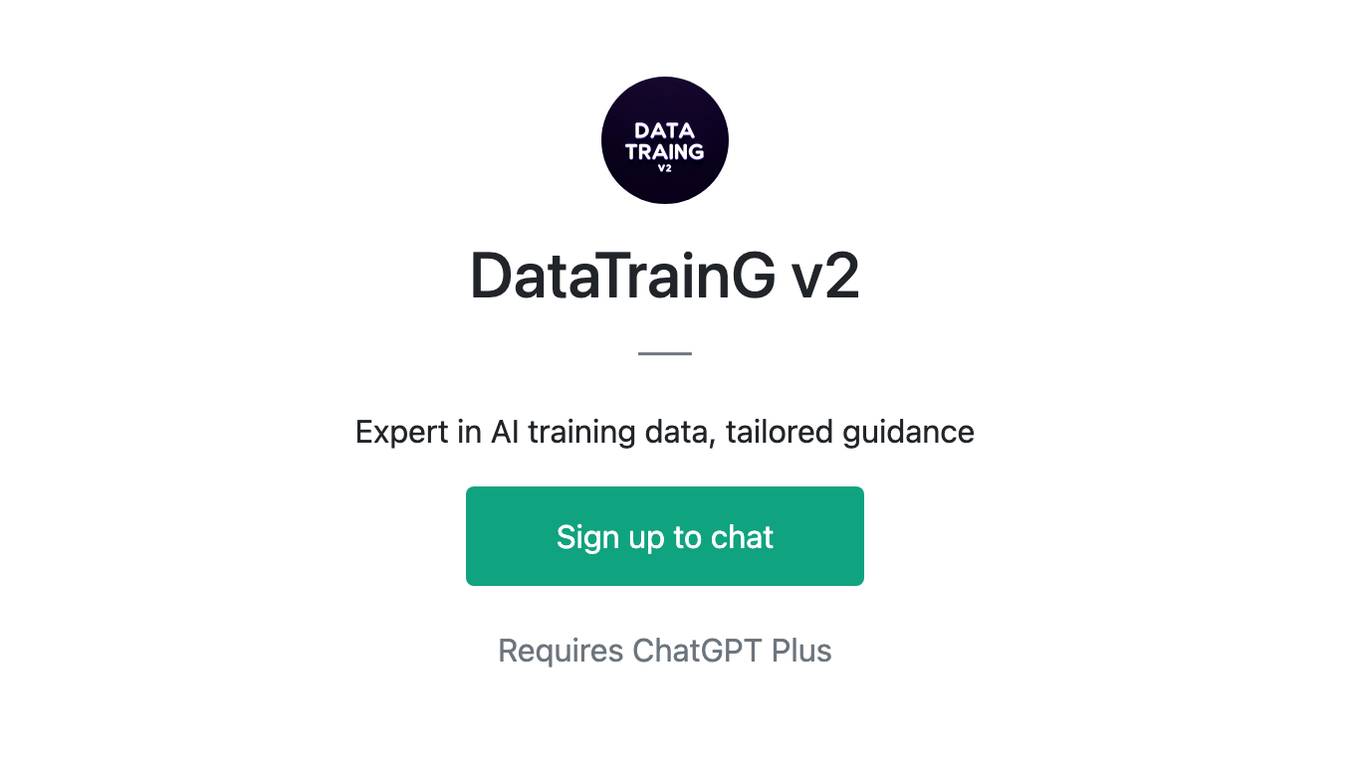Best AI tools for< Augment With Domain Knowledge >
20 - AI tool Sites
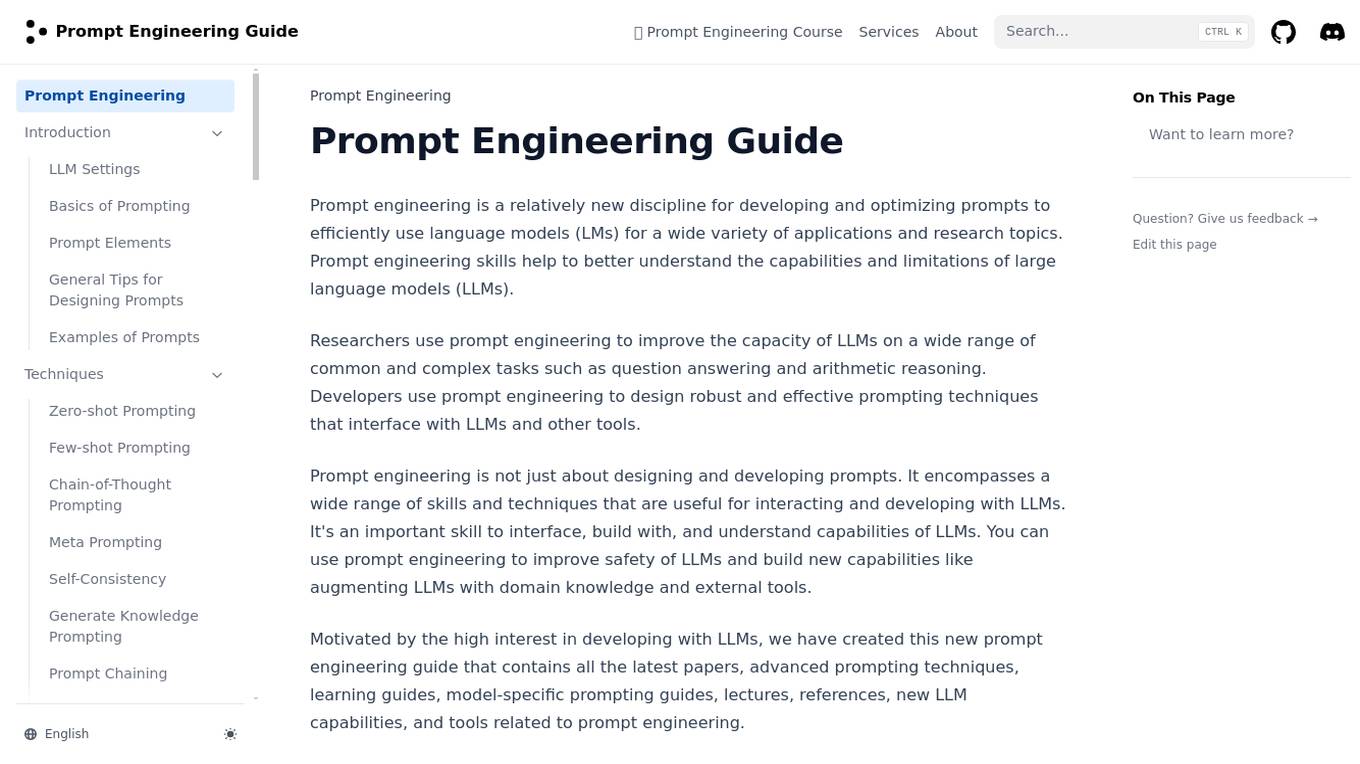
Prompt Engineering
Prompt Engineering is a discipline focused on developing and optimizing prompts to efficiently utilize language models (LMs) for various applications and research topics. It involves skills to understand the capabilities and limitations of large language models, improving their performance on tasks like question answering and arithmetic reasoning. Prompt engineering is essential for designing robust prompting techniques that interact with LLMs and other tools, enhancing safety and building new capabilities by augmenting LLMs with domain knowledge and external tools.
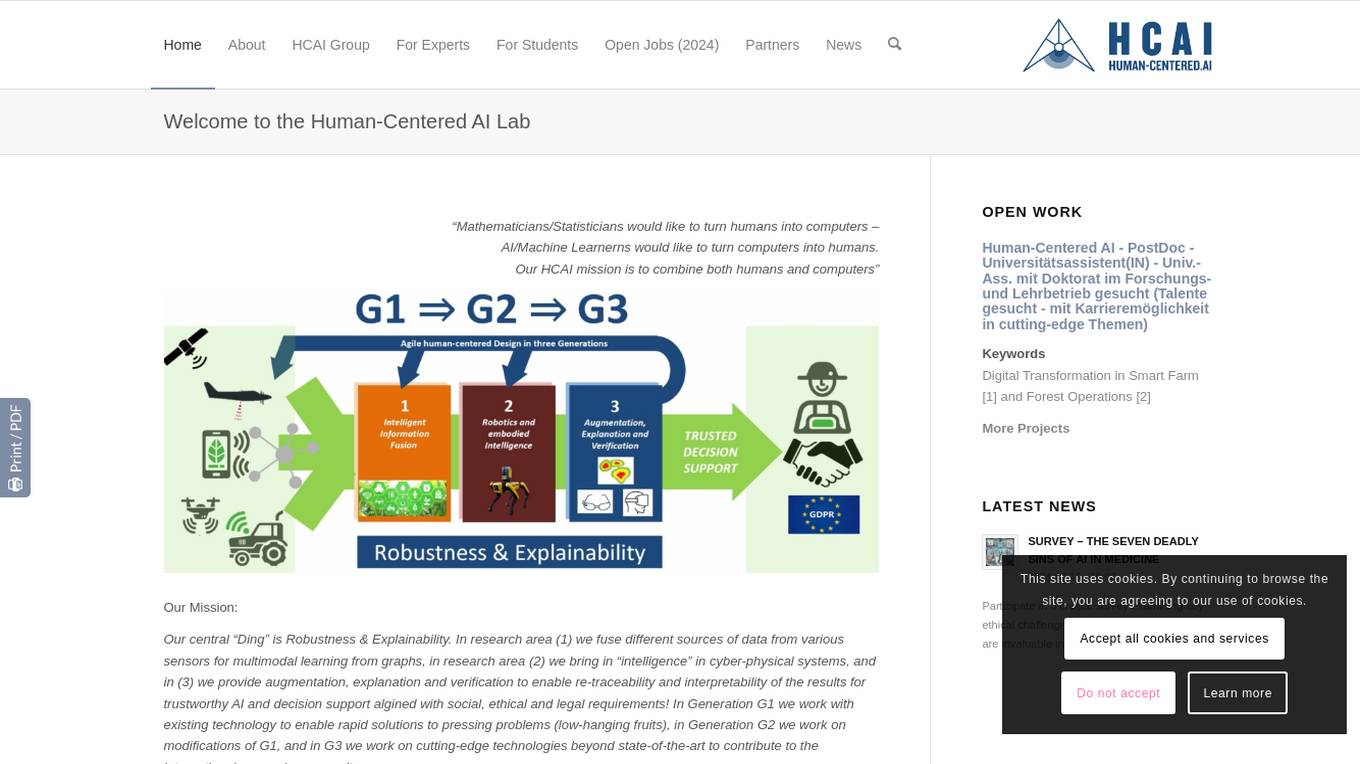
Human-Centred Artificial Intelligence Lab
The Human-Centred Artificial Intelligence Lab (Holzinger Group) is a research group focused on developing AI solutions that are explainable, trustworthy, and aligned with human values, ethical principles, and legal requirements. The lab works on projects related to machine learning, digital pathology, interactive machine learning, and more. Their mission is to combine human and computer intelligence to address pressing problems in various domains such as forestry, health informatics, and cyber-physical systems. The lab emphasizes the importance of explainable AI, human-in-the-loop interactions, and the synergy between human and machine intelligence.
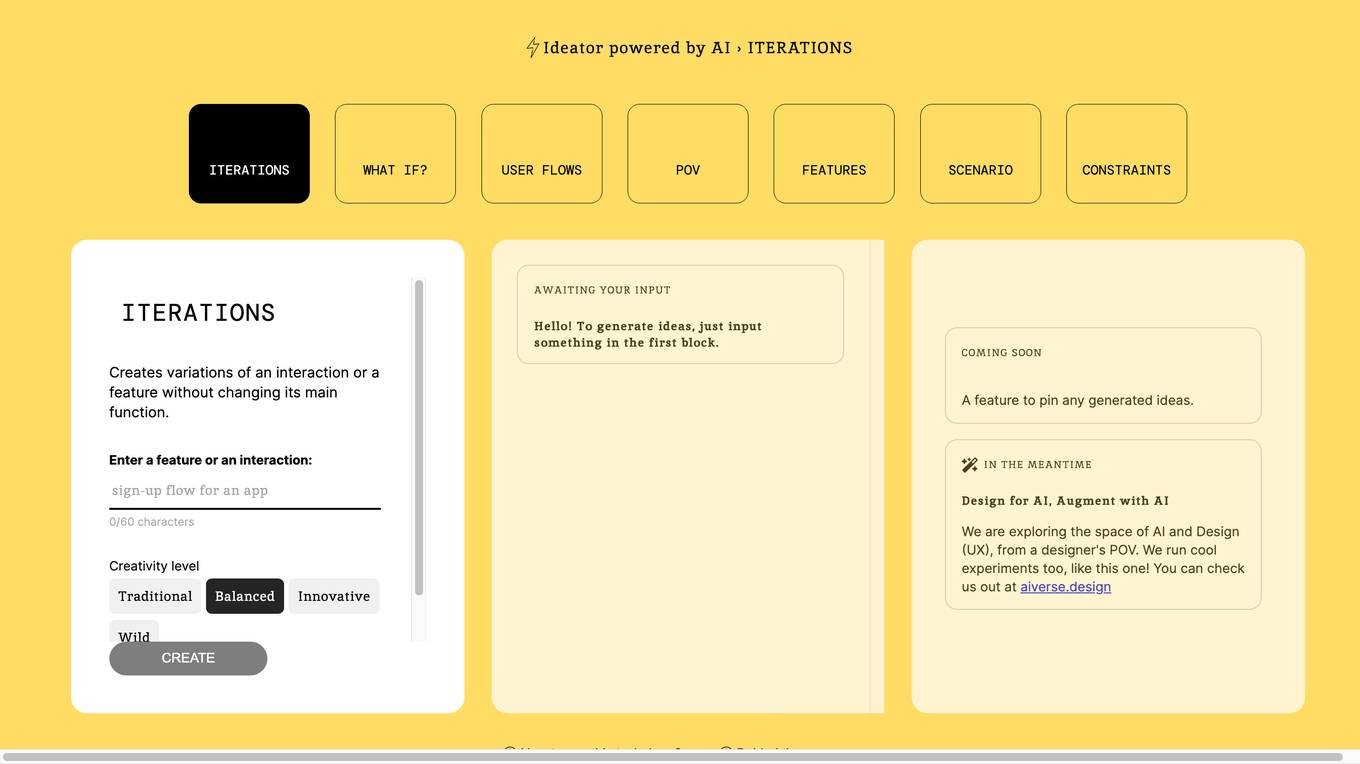
Ideator
Ideator is an AI-powered tool that helps designers and innovators generate creative ideas. It allows users to input a feature or interaction and then generates different variations of how it could be used, while keeping its main job the same. Ideator is still under development, but it has the potential to be a valuable tool for designers and innovators who are looking for new and creative ways to solve problems.

Secure.com
Secure.com is an AI-powered digital security teammate application designed to enhance cybersecurity operations by providing end-to-end, context-aware security solutions. The application offers personalized security teammates, stack-agnostic security, human-in-the-loop control with explainable AI, flexible workflows, and unified context for real-time security monitoring. Secure.com aims to help security teams tackle the challenges of alert noise, threat investigation, compliance automation, and overall security management efficiently and effectively.
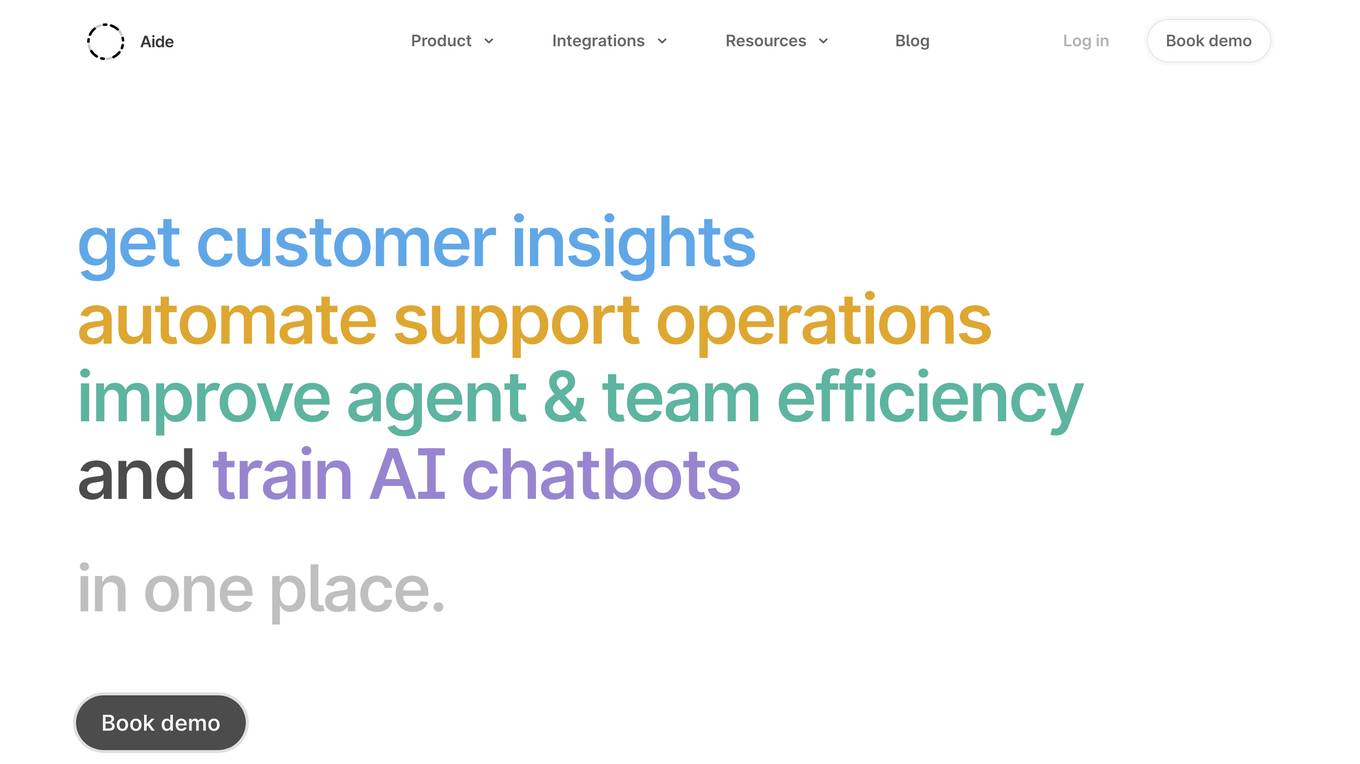
Aide
Aide is an AI platform designed to enhance customer support operations. It offers a range of features to help businesses gain insights into customer needs, automate support processes, improve agent efficiency, and train AI chatbots. Aide's key capabilities include customer insights, workflow automation, agent assist, and AI chatbots. With Aide, businesses can analyze customer conversations, identify pain points, and automate repetitive tasks to streamline support operations and improve customer satisfaction.
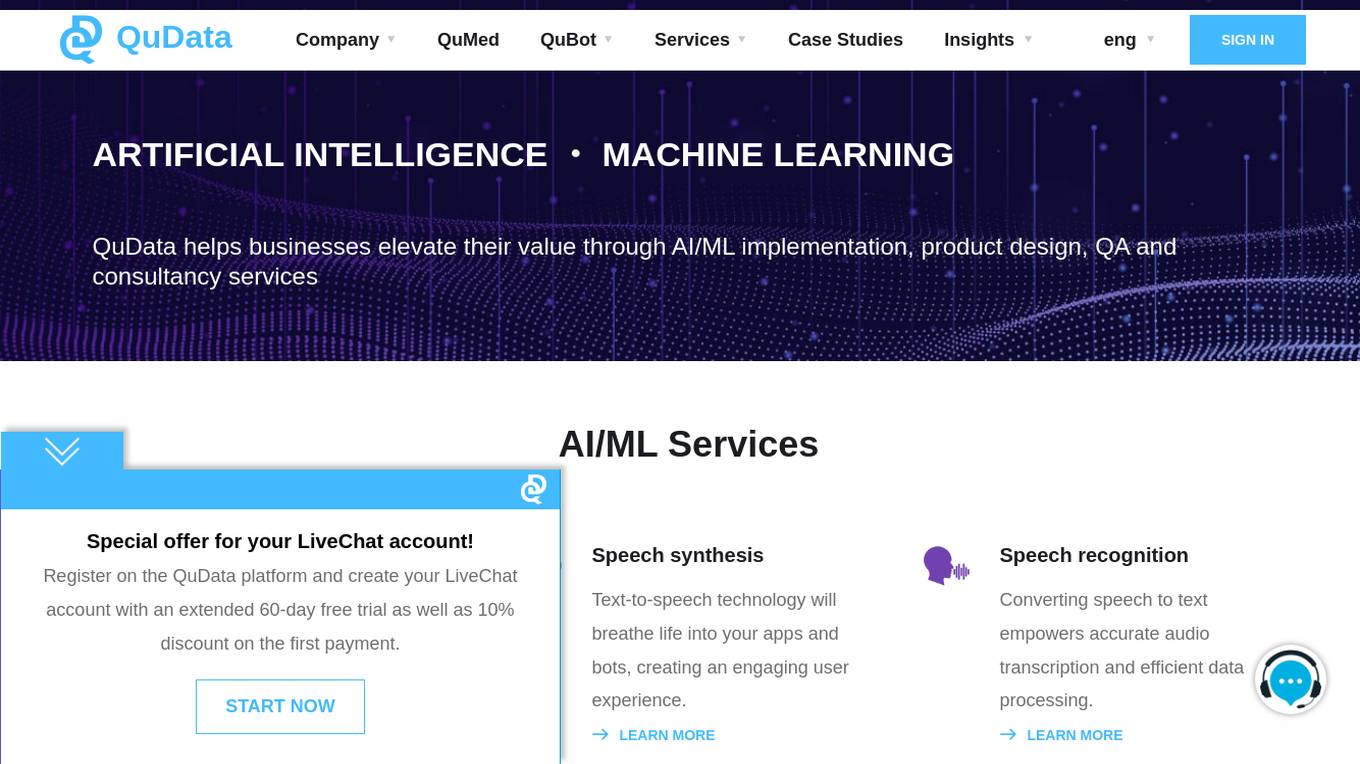
QuData
QuData is an AI and ML solutions provider that helps businesses enhance their value through AI/ML implementation, product design, QA, and consultancy services. They offer a range of services including ChatGPT integration, speech synthesis, speech recognition, image analysis, text analysis, predictive analytics, big data analysis, innovative research, and DevOps solutions. QuData has extensive experience in machine learning and artificial intelligence, enabling them to create high-quality solutions for specific industries, helping customers save development costs and achieve their business goals.

Crowdynews
Crowdynews is an AI-powered user-generated content curation tool designed for digital publishers. It helps publishers augment their stories with trusted social media content, increasing engagement and conversion rates. The platform combines multiple social media sources, offers intelligent filters for content control, and provides easy-to-use experiences for publishers to drive audience engagement. Crowdynews is trusted by publishers and brands worldwide to enhance the social experience on their websites.
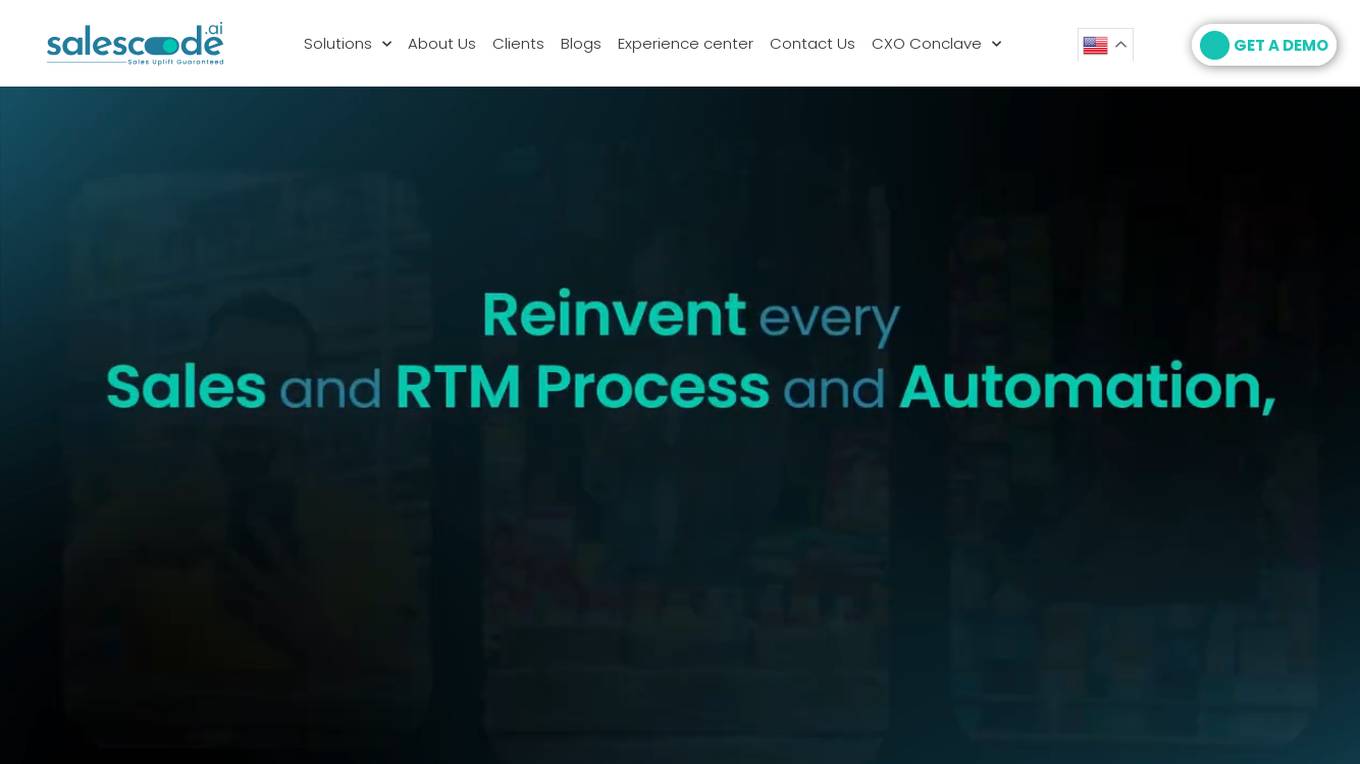
SalesCode.ai
SalesCode.ai is an AI-powered platform designed for Sales Force Automation (SFA) and eB2B solutions, specifically tailored for Consumer Packaged Goods (CPG) companies. It offers intelligent features to augment sales teams with AI technology, connect channel partners, and optimize sales and distribution processes. The platform guarantees business impact with reductions in cost-to-serve, increases in distribution, and sales uplift. SalesCode.ai provides intelligent solutions for sales uplift, working capital optimization, cost optimization, and customer service, ensuring guaranteed sales uplift and enhanced relationships with customers.

Dreamwave
Dreamwave is an AI research lab developing new ways to augment human creativity with artificial intelligence. Its products include AI headshots, team headshots, and custom photo studios. AI headshots can be generated in minutes, and team headshots can be generated consistently to scale with growing companies. Custom photo studios allow users to generate new photos of themselves with any scene, outfit, or hair. Dreamwave is committed to empowering human creativity, safe and unbiased representation, and secure and private data.
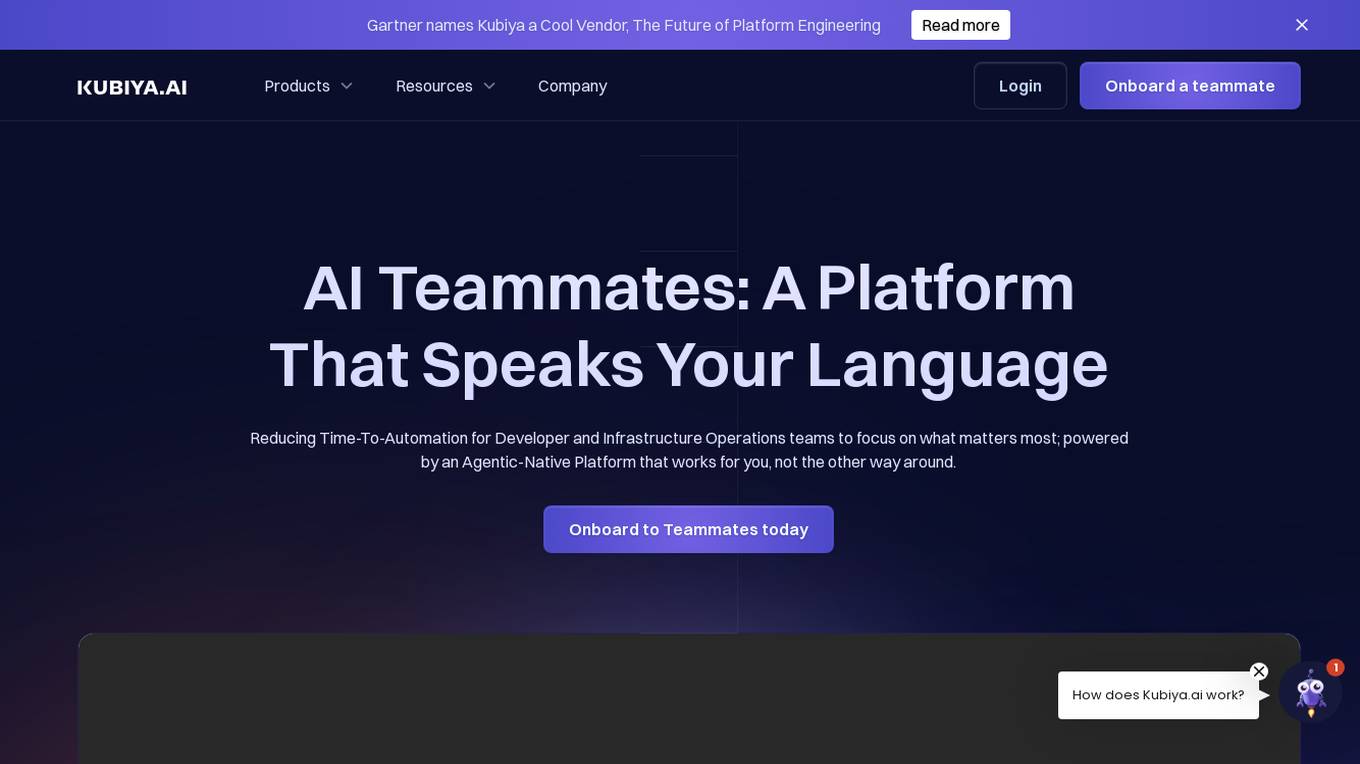
Kubiya
Kubiya is an AI-powered platform designed to reduce Time-To-Automation for Developer and Infrastructure Operations teams. It allows users to focus on high-impact work by automating routine tasks and processes, powered by an Agentic-Native Platform. Kubiya is trusted by world-class engineering and operations teams, offering features such as AI teammates, JIT Permissions, Infrastructure Provisioning, Help Desk support, and Incident Response automation.
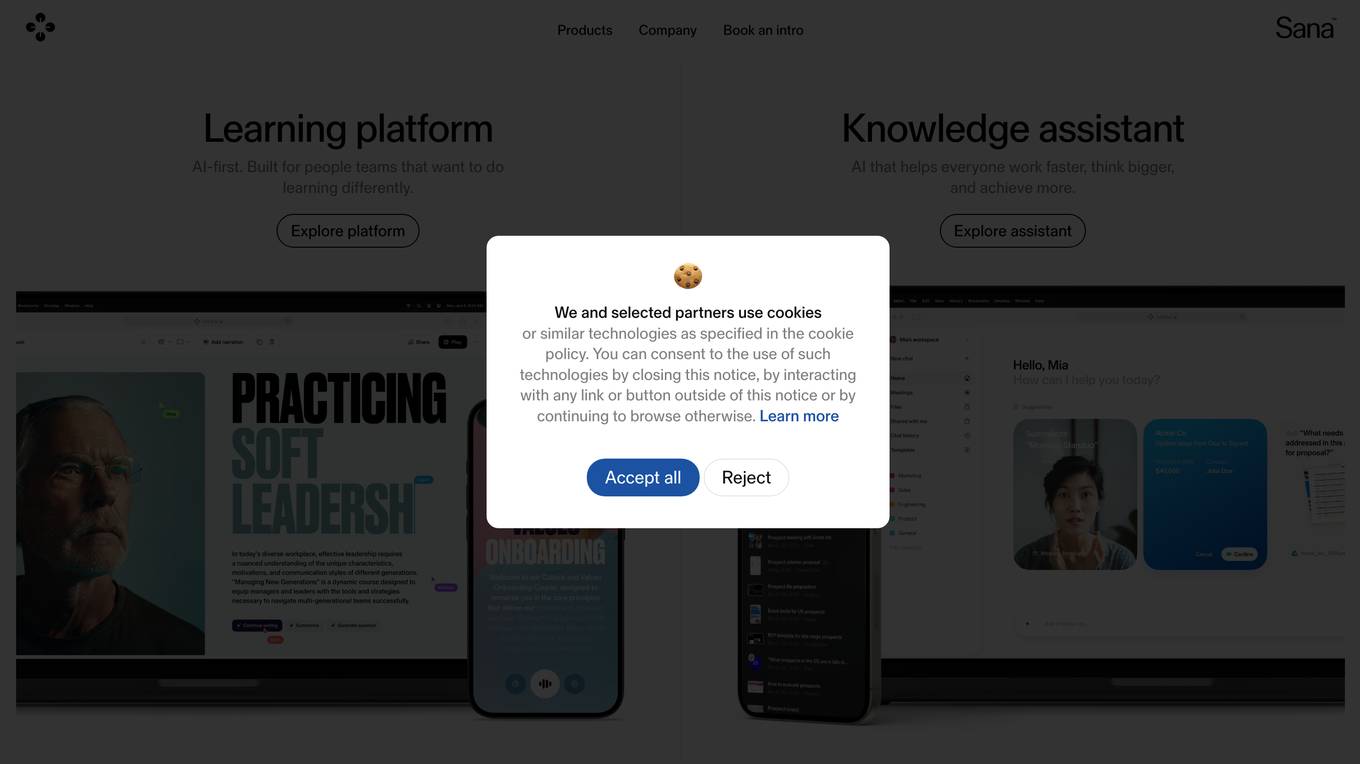
Sana
Sana is an AI company transforming how organizations learn and access knowledge. Its AI-first learning platform and knowledge assistant are designed for people teams that want to do learning differently. The platform offers integrations, solutions for employee onboarding, sales enablement, compliance training, leadership development, and external training. The knowledge assistant helps everyone work faster, think bigger, and achieve more. Sana's products are trusted by the world's most pioneering companies.
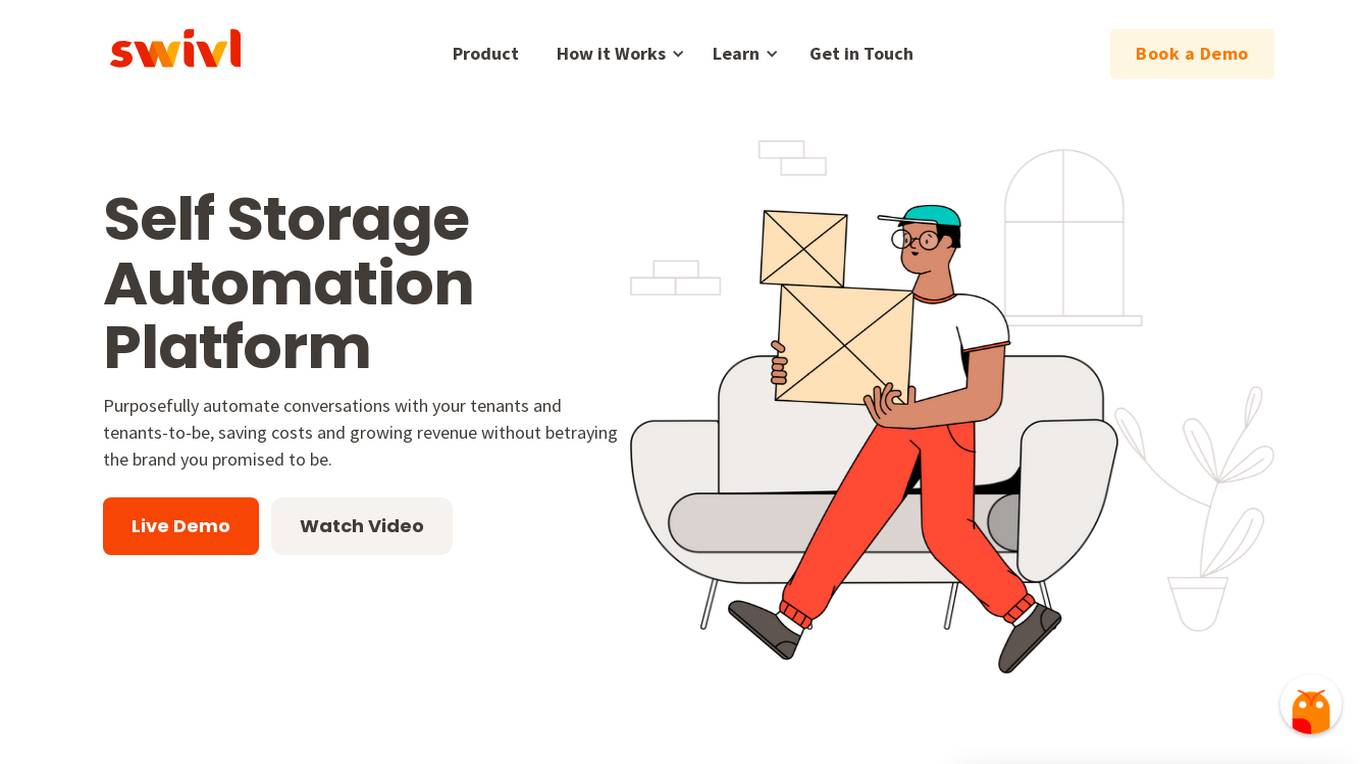
Swivl
Swivl is an automation platform designed for self-storage businesses, offering intelligent automation solutions to streamline operations and enhance customer interactions. The platform leverages conversational AI technology to automate conversations with tenants, drive revenue, and augment workforce capabilities. Swivl aims to simplify the rental process, save costs, and increase revenue for self-storage operators while maintaining brand integrity. The platform is trusted by self-storage leaders for its ability to automate customer touchpoints, provide automated customer support and sales assistance, and enhance team productivity. With features like digital assistants, online self-service automation, inventory recommendations, call center deflection, and omni-channel experiences, Swivl is a comprehensive solution for self-storage businesses.
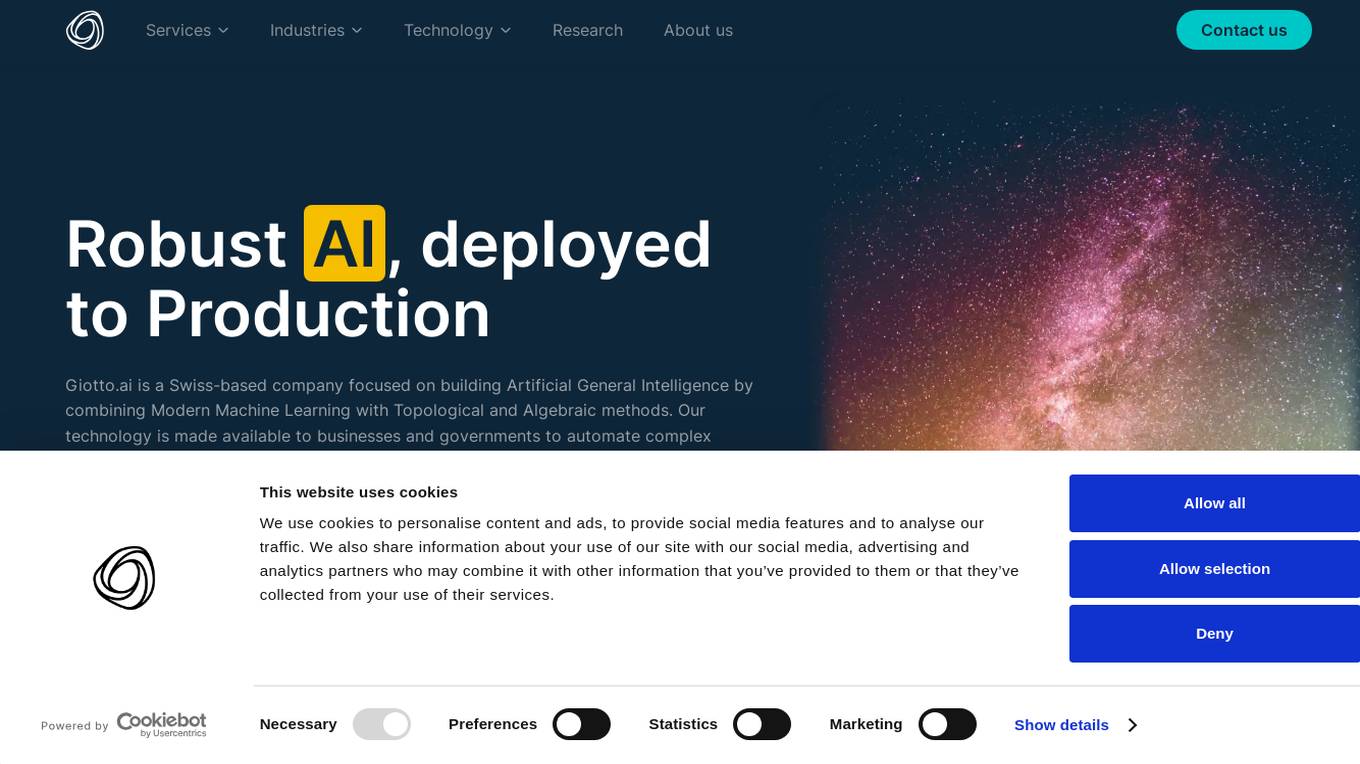
Giotto.ai
Giotto.ai is a Swiss-based company focused on building Artificial General Intelligence by combining Modern Machine Learning with Topological and Algebraic methods. They offer AI Strategy Consulting, AI Application Development, AI Model Integrations, AI R&D Services, and on-demand AI & Tech Talent Solutions. The company provides services to various industries such as Insurance, Finance, Logistics, Healthcare, Education, Retail, Manufacturing, and Defence. Giotto.ai aims to automate complex processes with a high level of robustness and explainability, driving innovation in the technological space.
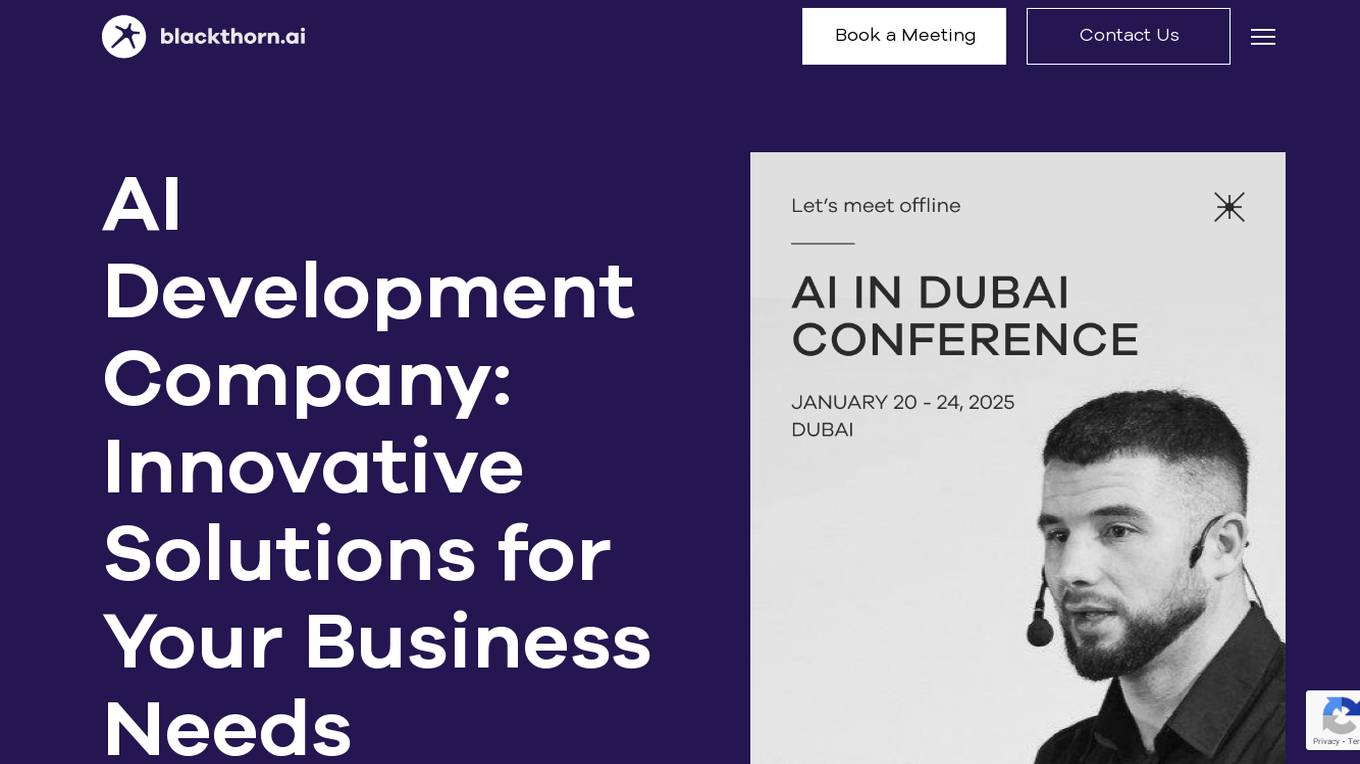
Blackthorn AI
Blackthorn AI is an AI development company offering innovative solutions for businesses across various industries. With a focus on AI & ML development services, generative AI, big data analytics, and custom software development, Blackthorn AI aims to transform businesses with precision and measurable results. The company has a proven track record of successful projects and a team of certified experts, delivering enterprise-grade accuracy and results. Recognized as a top AI company, Blackthorn AI specializes in solving complex challenges and empowering businesses to innovate and excel in a competitive market.

Botsy
Botsy is an AI chatbot builder designed for WhatsApp, enabling users to create conversational AI chatbots without the need for coding. It allows for natural conversations, brand customization, audience management, user data analysis, and knowledge augmentation. Botsy offers usage-based pricing with discounts for larger message bundles, along with hands-on training and tech support for customers. The platform aims to leverage AI for social impact by providing personalized AI services to communities in need.
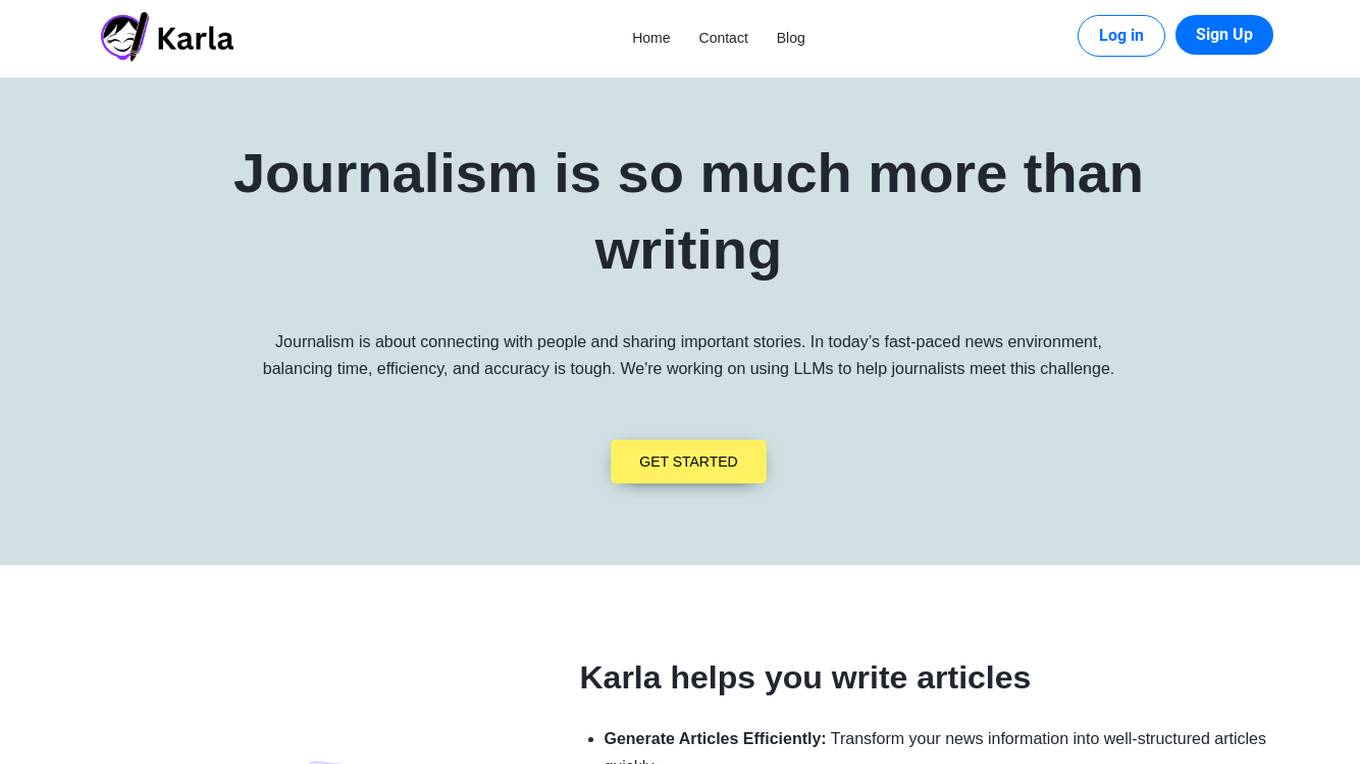
Karla
Karla is an AI tool designed for journalists to enhance their writing process by utilizing Large Language Models (LLMs). It helps journalists transform news information into well-structured articles efficiently, augment their sources, customize stories seamlessly, enjoy a sleek editing experience, and export their completed stories easily. Karla acts as a wrapper around the LLM of choice, providing dynamic prompts and integration into a text editor and workflow, allowing journalists to focus on writing without manual prompt crafting. It offers benefits over traditional LLM chat apps by providing efficient prompt crafting, seamless integration, enhanced outcomes, faster performance, model flexibility, and relevant content tailored for journalism.
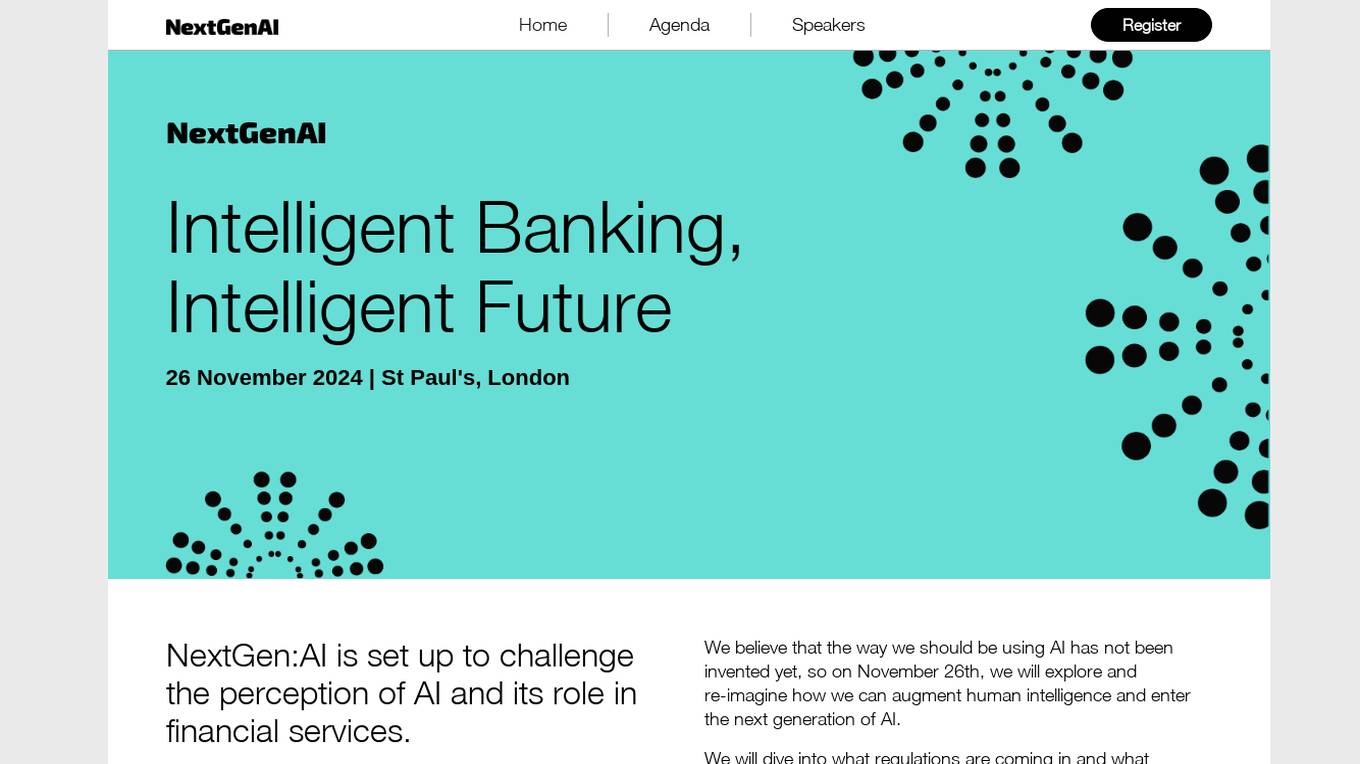
NextGenAI
NextGenAI is an AI application focused on the financial services industry. It aims to challenge the current perception of AI and its role in banking and financial institutions. The platform explores innovative ways to augment human intelligence and propel the financial sector into the next generation of AI. Through a combination of keynotes, panels, demos, and workshops, NextGenAI facilitates discussions on AI regulations, industry best practices, and collaboration opportunities.
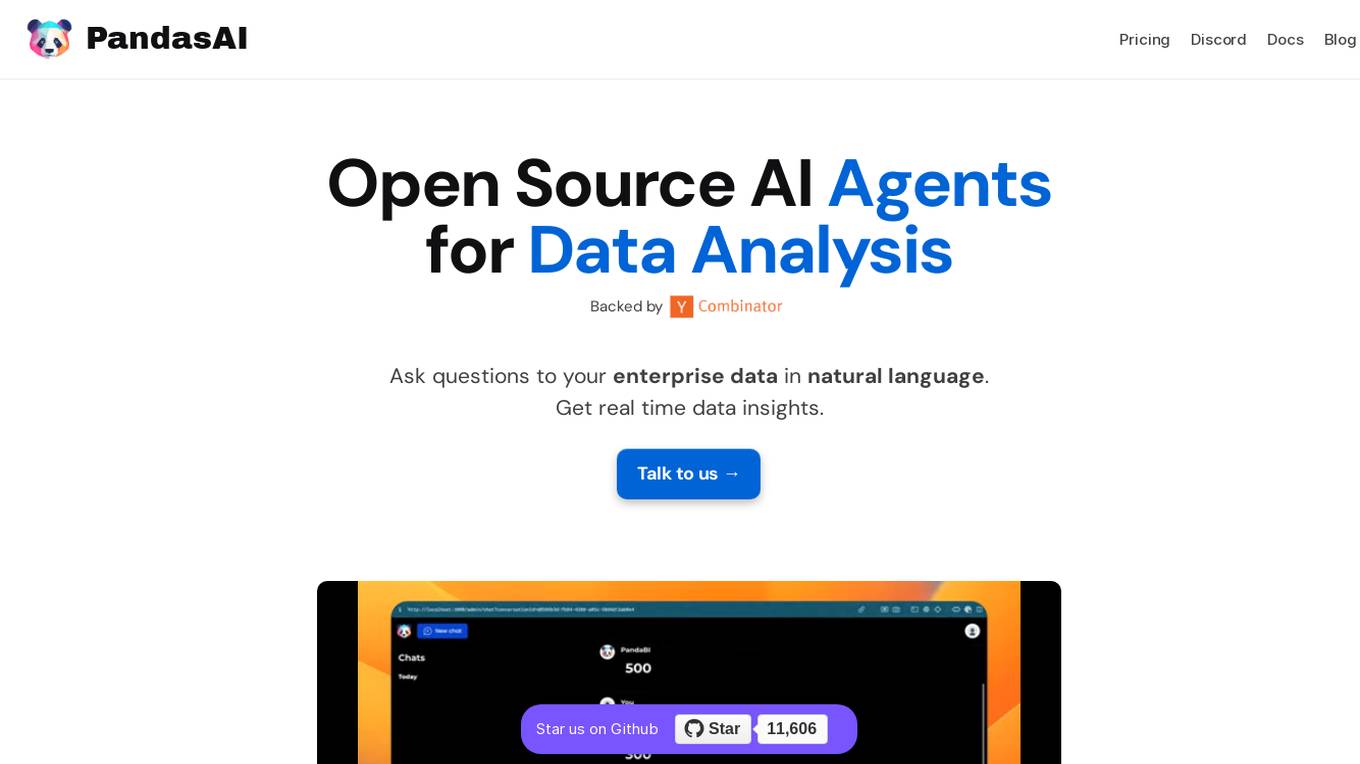
PandasAI
PandasAI is an open-source AI tool designed for conversational data analysis. It allows users to ask questions in natural language to their enterprise data and receive real-time data insights. The tool is integrated with various data sources and offers enhanced analytics, actionable insights, detailed reports, and visual data representation. PandasAI aims to democratize data analysis for better decision-making, offering enterprise solutions for stable and scalable internal data analysis. Users can also fine-tune models, ingest universal data, structure data automatically, augment datasets, extract data from websites, and forecast trends using AI.

SparkCognition Government Systems
SparkCognition Government Systems (SGS) is a full-spectrum artificial intelligence company dedicated to government and national defense missions. The company leverages AI technologies such as machine learning, natural language processing, and computer vision to enhance mission readiness, battle management, logistics, security, and manufacturing optimization. SparkCognition Government Systems focuses on delivering targeted AI solutions to amplify asset readiness, augment human intelligence, and accelerate decision-making processes for government organizations.
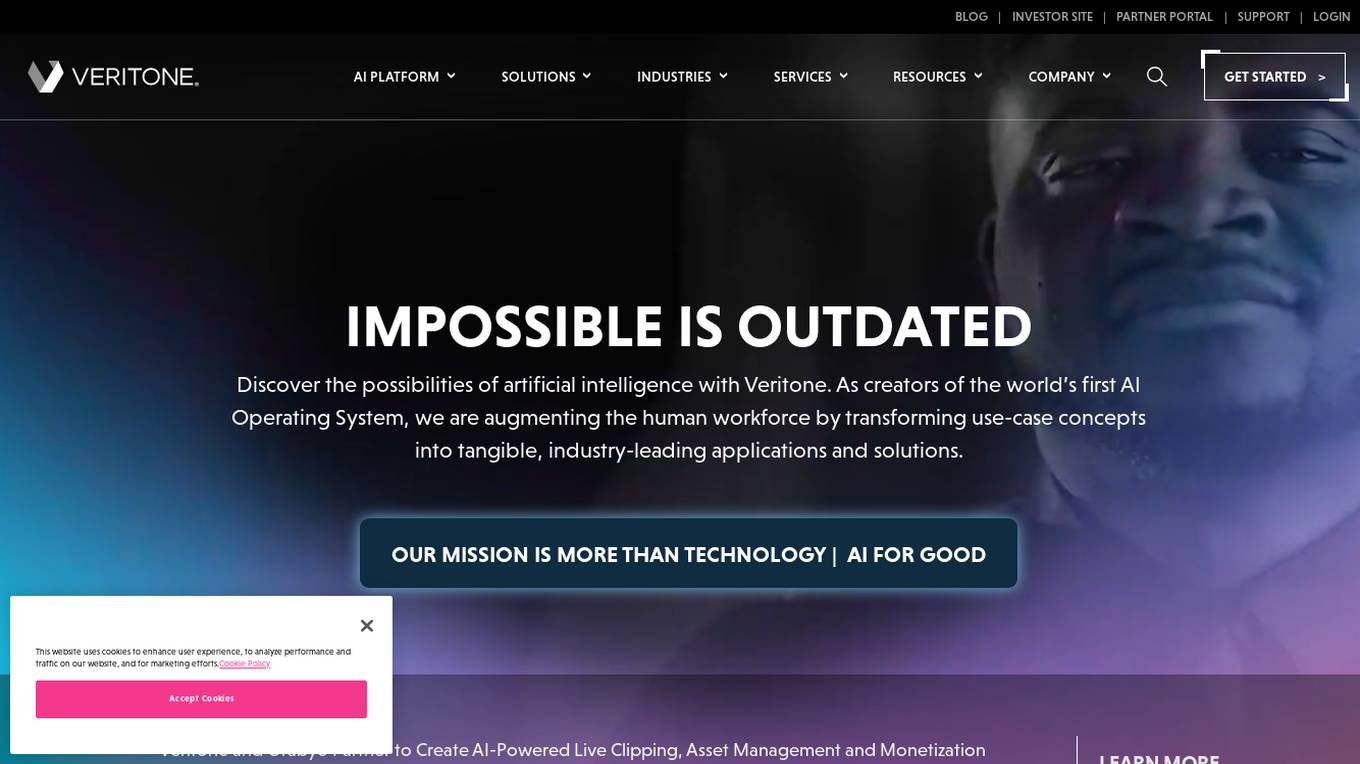
Veritone
Veritone is a leading provider of artificial intelligence (AI) solutions for businesses. Its flagship product, aiWARE, is an enterprise AI platform that provides access to hundreds of cognitive engines through one common software infrastructure. Veritone's AI solutions are used by businesses in a variety of industries, including media and entertainment, recruitment, government, legal and compliance, and sports. Veritone's mission is to augment the human workforce by transforming use-case concepts into tangible, industry-leading applications and solutions.
